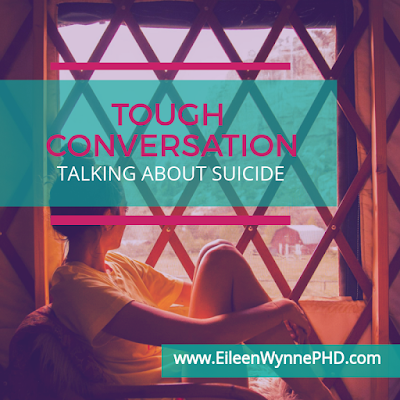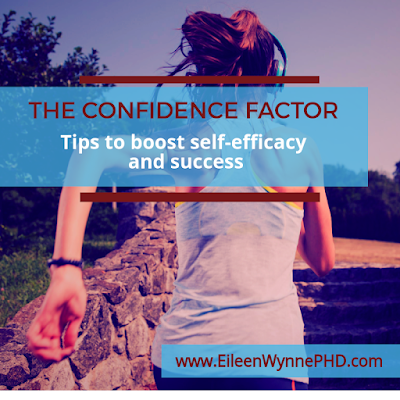
EILEEN WYNNE, PHD, LCSW
Psychotherapist & Life Coach:
Providing Therapy for New Orleans

Psychotherapy Services in New Orleans
From low-level anxiety to depression or major trauma, psychotherapy aims to address the root of the issue rather than simply treat the symptoms. Dr. Wynne can help you heal after loss, recover from crisis, or learn skills that make your everyday life easier. With psychotherapy, you can take a more active role in your life.
A number of benefits are available from participating in therapy.
Therapists can provide support, problem-solving skills, & enhanced coping strategies for issues like:
depression
anxiety
relationship troubles
unresolved childhood issues
grief
stress management
body image issues
creative blocks

Life Coaching Services in New Orleans
Do you want to begin a new career, discover your passion, or find new ways to create forward momentum in your life? An action-oriented plan can give you the focus and motivation you need to achieve your goals. Discover how a life coach can help you navigate any major life transition.
Life coaching can get people out of a rut, refocus on the big picture, and take actions toward a more fulfilling life.
With a life coach, people are better able to:
Visualize clear goals
Weigh pros and cons
Define what is feasible
Distinguish a career from a calling
Develop a plan of action
Discover more joy
Meet Dr. Eileen Wynne
Therapist & Life Coach
Dr. Eileen Wynne is a licensed therapist and a certified life coach. She received her PhD from the Tulane University School of Social Work and has over 25 years of mental health experience. During her doctoral research, Dr. Wynne specialized in the fields of trauma and resiliency. She has completed advanced training in both Psychodynamic Psychotherapy and Jungian Analysis. Additionally, Dr. Wynne has trained with renowned motivational speaker Alan Cohen.
She served for over a decade on the staff of Ochsner Hospital in the Department of Psychiatry and the Department of Nephrology, and as an adjunct professor at Tulane University.

TRANSITION TO COLLEGE
College freshmen often must adjust to being away from home and separating from old friends. They may become disillusioned when academic, social, and personal expectations are not met. Independence may now seem a little frightening. They may feel lost and alone. If you are a college freshman struggling to adapt, know that you are not alone and that you do not have to face these challenges without support.
FIND YOUR PASSION
When you pursue goals that inspire and excite you, you are well on your way to finding a fulfilling career. When you find a job that aligns with your passion, you will still have to work hard, but it will not feel like work because you’ll derive satisfaction from it. You will feel harmonious and expansive. Your life will open up with opportunity. Everyone has a unique part to play, and Dr. Wynne can help you discover yours.
TRAUMA & PTSD
Post-Traumatic Stress Disorder (PTSD) develops when people have lived through a shocking and traumatic event such as combat, terrorist attack, physical or sexual assault, accident, or natural disaster. Approximately 5.2 million U.S. adults suffer from PTSD in a given year. Dr. Wynne specializes in working with clients who have experienced trauma and uses a range of customizable treatment approaches to improve each unique client’s quality of life.

Eileen provides New Orleans therapy services for:
Issues
Specialties
Anxiety
Depression
Coping Skills
Mental Health
Dissociative Disorders (DID)
Elderly Persons Disorders
Mood Disorders
Personality Disorders
Sexuality
Bisexual
LGBTQ+
Lesbian
Client Focus
Age
Elders (65+)
Adults
Teen
Communities
Bisexual Allied
Gay Allied
Non-Binary Allied
Treatment Approach
Types of Therapy
Attachment-based
Coaching
Emotionally Focused
Existential
Humanistic
Jungian
Positive Psychology
Psychodynamic
Strength-Based
Trauma Focused
Modality
Individuals
Family
Group
LIFE TRANSITIONS BLOG
Therapy, Life Coaching, Mental Health and other advice for College and University Students and all those young at heart
In my New Orleans practice, I work with parents, teens, and families who find themselves facing a mental health crossroads. Some come with concerns about depression, anxiety, and age-related stressors. Others come with dire worries about self-harm and suicidal thoughts. Regardless of the specific issue, one thing is clear: talking about mental health with teens can be incredibly difficult.
For many, the idea of going to therapy or counseling can be a bit… intimidating. Despite the many benefits they know come with therapy, people often avoid seeking professional help. One of the most common reasons for this hesitation is a fear of the unknown - not knowing what to expect from the therapy experience.
Loneliness is a growing problem among young adults and career professionals, and as a therapist and life coach here in New Orleans, I see it every day in my practice. The COVID-19 pandemic has only made things worse, leaving many people feeling isolated and disconnected from others.
As a therapist working with young professionals and college students in New Orleans, I've seen firsthand the immense pressure many of my clients face to excel in their personal and professional lives. And if there’s one concept I’m finding popping up more and more, it’s emotional intelligence (EQ) – especially within self-improvement and professional development.
Do you find yourself constantly saying "yes" to requests from others, even when you genuinely want to say "no"?
Do you go out of your way to accommodate people, forgetting your own needs and desires in the process?
If this sounds familiar, you may exhibit people-pleasing behaviors.
You may not realize it, but you do talk to yourself. All the time, actually. And those words you say to yourself profoundly affect your mindset, self-belief, and ability to achieve your goals. The stream of self-talk running through your mind impacts your emotions, your outlook, and even your abilities.
That's why, as a licensed psychotherapist with my Ph.D. who has counseled countless young adults and professionals over my 25+ year career, I'm an enthusiastic proponent of positive daily affirmations.
In my work with clients, dreams often come up as a window into their inner worlds. My clients share dreams that seem bizarre or intense and wonder what meaning they could possibly have.
I believe everyone has the right to understand their personal dreams and use them as a positive force in their lives. Let’s look at dreams – why they happen, what they mean, and how best to use them – so that everyone can benefit from this underestimated human experience.
Every week, I meet with individuals in my New Orleans therapy practice who mention their struggles with social anxiety disorder. Although people often use the term “social anxiety” interchangeably with shyness, there is a world of difference between these two states.
Unlike shyness, which may be temporary, mild, and easily managed, social anxiety disorder (SAD) is an intense fear of being judged negatively or embarrassed in front of others. Sometimes, it can become a phobia, preventing you from engaging with others publicly or privately.
An interesting movement in therapy has arisen in the past few decades, driven by Dr. Martin Seligman. Known as “positive psychology,” Seligman’s philosophy resonated deeply with me. Instead of lingering on flaws and failings, this approach celebrates our strengths, potential, and the many facets contributing to a fulfilling life.
Self-awareness serves as a guiding light in our pursuit of personal growth and achievement. Yet, we often struggle to remain mindful, clear and focused when our goals seem far away. This is where mastering self-awareness comes in.
As a therapist and counselor in New Orleans, I work with individuals who desire to unlock their inner potential and achieve their goals daily. Through my practice, I have found that self-awareness is the foundation for building meaningful, successful lives.
If you are in a relationship - be it dating, marriage, family, or platonic - with a narcissist, you may find yourself in a manipulative situation that is difficult to escape.
A narcissist - someone who exhibits a grandiose sense of self-importance, needs excessive admiration, and has an exaggerated sense of entitlement - often uses various techniques to manipulate the people around them.
Low self-esteem can be incredibly damaging to our mental and physical health, as it can lead to feelings of depression, anxiety, low motivation, insecurity in relationships and work settings, as well as a lack of resilience in the face of life’s challenges.
For many college graduates, the future is bright with hopes of a successful career, financial security, and a jumpstart on life. But for some, post-graduate depression can be an unwelcome surprise.
Navigating life during your twenties can be both exciting and overwhelming. From graduating college to entering the workforce, starting new relationships to managing finances – this decade is full of potential and potential pitfalls. When faced with these new experiences, it’s essential to protect your heart and mind.
Today’s culture is suffering from an epidemic that many feel, yet few recognize - loneliness and a lack of connection. Research continues to show that the majority of American adults identify as “isolated” or “lonely” in their daily lives, with few friends or close connections to call on when things are tough.
The explosion of dating apps and online dating platforms has completely changed the way people meet and connect. Rather than venturing out to public spaces and striking up a conversation with a stranger, people can now connect with others from the comfort of their homes - and in some cases, without even leaving their beds.
We’ve all seen the headlines about burnout among millennials – whether due to a demanding work culture, high expectations set by society, or both.
Young professionals, in particular, feel pressure to reach their goals while dealing with everyday anxieties and stress. Many are turning to therapy as a way to cope and improve their mental health.
Attachment and companionship are two crucial human needs. It shapes our interactions with others and how we see ourselves. As we age, companionship becomes an integral part of our lives.
Yet, for many, their personal and intimate relationships are marred by anxious preoccupied - a form of anxious attachment characterized by insecurity, clinginess, and constant worrying about being abandoned or rejected.
Who said your career has to be all about climbing the corporate ladder? In fact, your hobbies can play a big role in helping you rise to the top - in work and in life.
In today's hyper-competitive workforce, young professionals are finding that their first career moves are resulting in high levels of burnout.
For many college students, this school year will be unlike any other.
Many students have to adjust to a new reality with the ongoing pandemic - from attending online classes to living away from home for the first time. All of these changes can be tough to manage and can take a toll on your mental health.
Congratulations. You’re arriving at college in just a few days, and your world is about to explode with new experiences, ideas, friends and a few challenges as you settle into your new environment. Your freshman year is sure to be full of surprises and adjustments especially if you are sharing living space on or off-campus with others.
As colleges and universities design and implement new safety procedures, COVID-19 may escalate one of the most frequent challenges college students face—isolation. Many college students struggle with figuring out where they “fit in” under normal circumstances. With social distancing and a limit on social gatherings, there is the potential for students to feel even more isolated during this time.
Everyone experiences freshman year in a different way. There is a lot to be excited about when going away to college—making new friends, being more independent, becoming involved in a community, and discovering new passions. However, many students also often wonder why no one told them how difficult the first semester of college might be. Managing unrealistic expectations is one challenge many students encounter during the first year of college, but there are many more.
Preparing for college is an exciting time. Students typically look forward to beginning a new chapter of their lives. With all of this energy spent looking forward, you naturally develop certain expectations. When the reality of an experience does not match an expectation, the gap between the expectation and reality can be difficult to handle.
Recent high profile suicides and the popularity of the show 13 Reasons Why have made it apparent that this is an issue that is increasingly commonplace and yet incredibly misunderstood. The CDC reports that in the United States, deaths by suicide have been increasing over the last decade. Suicide is now one of the top five causes of death for teenagers 15-19 years old.
Most people have heard of seasonal affective disorder, commonly referred to as SAD. If you have never lived in a place where there is a distinct winter season, you may think of the disorder as something difficult to understand, but the truth is that about 4-6% of people suffer from wintertime depression.
You know a confident person when you see one. They are cool and self-assured. Confidence is the belief that you can do what you set out to do. It is a trust in the self and certainty in one's abilities. It may seem like a skill that is arbitrarily handed out to some and not to others, but in truth, anyone can become more confident.
In our culture, a lot of attention is focused on the negative aspects of romance, love, and marriage. But today, in honor of Valentine’s Day, I’d like to celebrate great relationships and look at what keeps them going and growing. This post is about all the things that make being a part of a committed romantic relationship so rewarding.
The #MeToo movement has captured national attention by making front page what has long been a dark secret. This movement has been a catalyst for many eye-opening and heartbreaking conversations. It has been sobering to read and hear the confessions of long-kept secrets from so many women in the public eye and our personal lives.
We all know toxic people and we all know that they are dangerous to our emotional well being. They are the naysayers or dream killers in our lives who always seem to make us feel like we are not good enough or smart enough. The bottom line is that toxic people bring us down and make us feel bad about ourselves and our lives and choices more often than not.






























